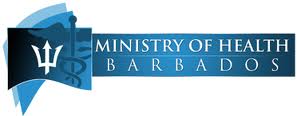The Environmental Health Department of the Ministry of Health has seen it fit to sit and discuss results of the Barbados Burden of Illness (BOI) Study via a data dissemination workshop, in an effort to identify the main factors that cause food-borne illnesses in Barbados, to find ways to reduce such ailments, while strengthening the national communicable diseases surveillance system.
The study forms part of a global initiative pushed by the World Health Organisation (WHO), to estimate the global burden of food-borne diseases. The WHO has noted that food-borne diseases encompass a wide spectrum of illnesses and are a growing public health problem world-wide. The most common clinical presentation of food-borne diseases takes the form of gastrointestinal symptoms, but such diseases can also lead to chronic, life-threatening symptoms as well.
The “Barbados Burden of Illness Study”, was undertaken jointly by the Trinidad-based Caribbean Epidemiology Centre (CAREC) and the Pan American Health Organisation (PAHO), in conjunction with the local Ministry of Health. Barbados was just one of eight countries participating at the regional level, to gather more data and information in relation to food-borne illness in the Caribbean region.While the full results of the BOI have yet to be revealed to the media by the Health Ministry, Dr. Lisa Indar, Manager for Food-borne Diseases with CAREC/PAHO/WHO, in speaking of the Global Burden of Illness Study, suggested that there were some startling information surfacing during the study for Barbados. She noted that under reporting of cases, testing for certain pathogens while leaving out others and time management in terms of getting relevant samples to their destinations on time, were some issues that needed to be dealt with, so as to get the true picture about food-borne diseases on a whole.
Giving background information on the Study however, was Chief Medical Officer Dr. Joy St. John, who noted that the true burden of food-borne illnesses in Barbados and the region had previously not been well defined. She however suggested, that a bit of research has indicated that 70% of diarrheal diseases are food-borne, and regionally, acute gastrointestinal illness is on the rise. Acknowledging the benefits that could come from such a survey, such as the strengthening of the national communicable disease surveillance system, the formulation of public health policies to treat to such issues and the improvement of laboratory capacity, Dr. St. John noted that 1700 randomly selected households were involved in the study, and householders provided valuable information about their beliefs about the causes of the illness, health seeking behaviours and their hand washing practices, along with other critical information.
The Burden of Illness Study was completed in a number of phases, from August 2010 to April 2011. One phase involved the retrospective national population survey, which estimated the number of persons experiencing acute gastro-enteritis (AGE) symptoms and the number of ill persons that sought the services of a physician, which led to the submission of a clinical specimen. The other phase saw enhanced laboratory testing for food-borne pathogens, along with a national laboratory survey.
It has been noted that the information gathered can also be used to “explore risk factors for infection, identify gaps in surveillance and provide the basis for guiding appropriate prevention and control measures for food-borne diseases in Barbados and the Caribbean.” (RSM)














